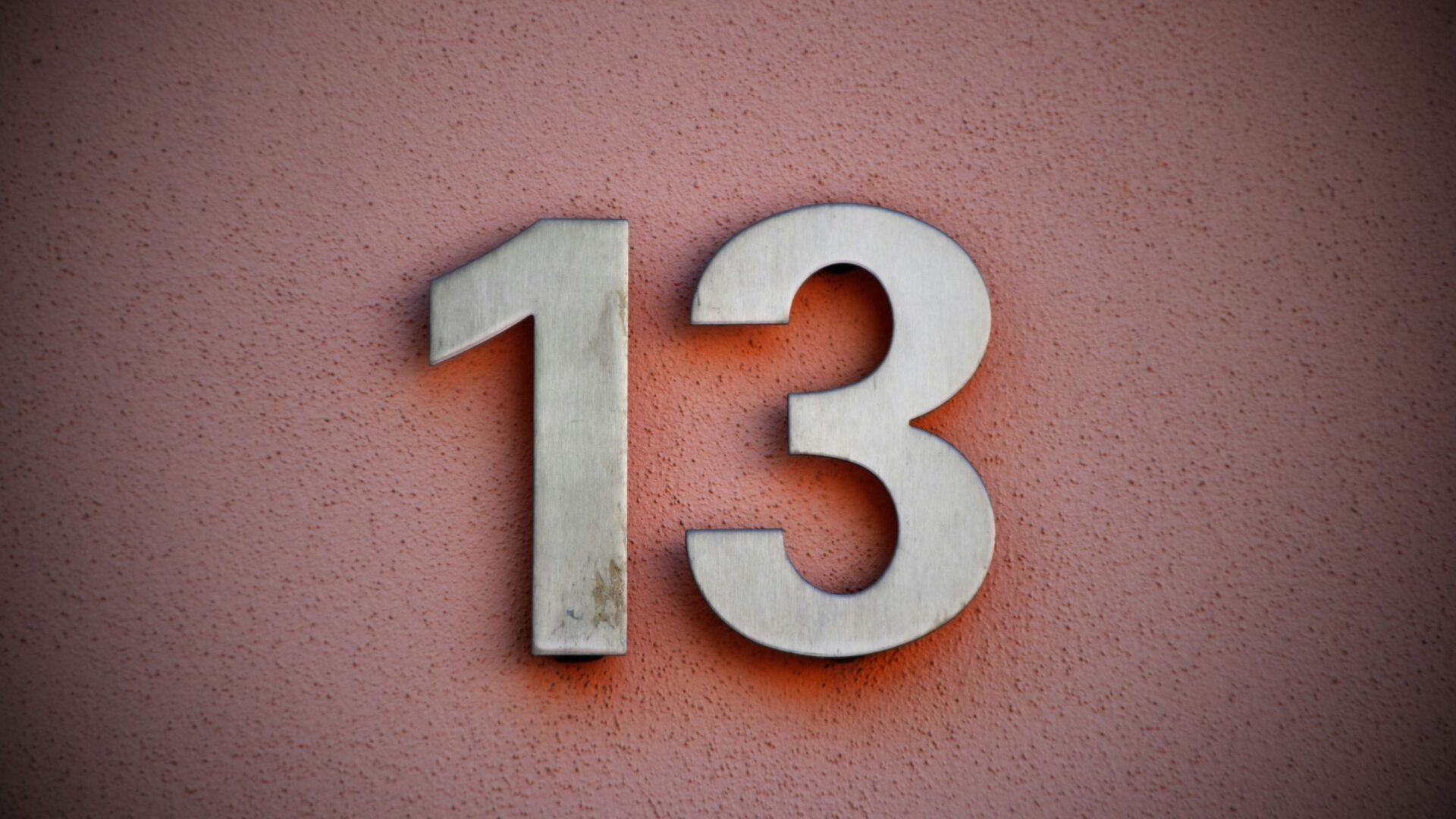Triskaidekaphobia: The Fear of the Number 13
What is Triskaidekaphobia?
Triskaidekaphobia is an irrational fear of the number 13. This superstition is widespread in Western cultures, leading to the avoidance of the number in buildings (such as skipping the 13th floor in hotels), airlines, and even sports teams.
Origin and History of Triskaidekaphobia
The fear of 13 has deep historical and cultural roots:
- Ancient Roots: Some trace it back to Norse mythology, where 12 gods were having a feast in Valhalla when Loki, the trickster god, arrived uninvited as the 13th guest. He caused the death of Balder, the god of light and joy.
- Christian Influence: The Last Supper had 13 attendees—Jesus and his 12 disciples. Judas, the betrayer, was the 13th to sit. This association with betrayal and misfortune strengthened the superstition.
- Ancient Rome: Romans believed that witches gathered in groups of 12, with the 13th member being the devil himself.
Who Coined or Discovered This Phobia?
The term “Triskaidekaphobia” comes from Greek: “tris” (three), “kai” (and), “deka” (ten), and “phobos” (fear). While it’s unclear who first coined the term, Isador Coriat, an American psychiatrist, is often credited with studying and categorizing it in the early 20th century.
Famous People Who Suffered from Triskaidekaphobia
Many notable figures were known to fear the number 13:
- Franklin D. Roosevelt: Avoided traveling on the 13th of any month and never hosted 13 guests at a dinner table.
- Napoleon Bonaparte: Supposedly feared the number 13.
- Mark Twain: Once attended a dinner party with only 13 guests and later noted that one of them died, reinforcing the superstition.
- Stephen King: The famous horror writer has admitted to feeling uneasy about the number 13.
Literature and Films About Triskaidekaphobia
- Books:
- 13: The Story of the World’s Most Notorious Superstition by Nathaniel Lachenmeyer explores the origins and impact of triskaidekaphobia.
-
Nathaniel Lachenmeyer’s 13: The Story of the World’s Most Notorious Superstition delves into the origins and cultural impact of triskaidekaphobia—the fear of the number 13. The book examines how this superstition developed across various societies and its influence on modern culture.
Lachenmeyer explores questions such as:
-
“If thirteen people sit down at a table, will one die within a year?”
-
“Why did five U.S. presidents join the Thirteen Club?”
-
“What is the only major New York hotel that has a thirteenth floor?”
Through these inquiries, he uncovers the roots of how the fear of the number 13 developed among diverse societies.
The book also discusses the Thirteen Club, a group formed to challenge the superstition surrounding the number 13. Notably, five U.S. presidents were members of this club, highlighting the widespread nature of this belief.
Lachenmeyer’s work serves as a cultural history and detective story, exploring why people believe what they do and the real reasons behind the superstition of Friday the 13th.
For those interested in understanding the pervasive nature of this superstition and its historical context, Lachenmeyer’s book offers a comprehensive and engaging exploration.
-
-
The Thirteen Problems by Agatha Christie is a collection of mystery short stories.
-
Thirteen Reasons Why by Jay Asher (while not directly about the fear, it plays with the number’s ominous nature).
- Movies:
- Friday the 13th (1980) and its franchise, heavily exploiting the fear of 13 and Friday the 13th.
- Thirteen Ghosts (2001), a horror film centered around supernatural beings.
- The Number 23 (2007), though about another number, shares themes of number-related paranoia.
Connections to Ancient Myths
- Norse Mythology: Loki’s arrival as the 13th guest and the death of Balder.
- Greek Mythology: Some link it to the 12 Olympian gods, fearing a 13th god would bring chaos.
- Mayan Calendar: The Mayans had a strong reverence for the number 13, and some misinterpreted their calendar’s 13 baktun cycle as a sign of the world ending in 2012.



